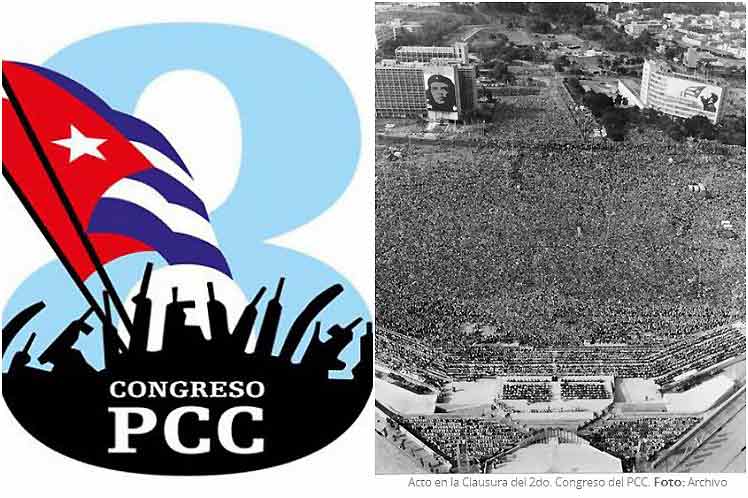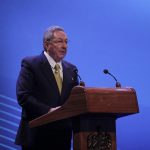Havana, Cuba: The Eighth Congress of the Communist Party of Cuba (PCC), from April 16 to 19, will be a milestone in the history of the Antillean country, which had to face difficult tests, including terrorism unleashed from the United States.
That was the intensified scenario that preceded the Second Congress of the partisan organization (December 17 and 20, 1980), which took place in the brand new Palace of Conventions in this capital, inaugurated a year before to host the Sixth Summit of the Movement of Non-Aligned Countries.
Representatives of 142 communist parties and other international revolutionary and progressive groups attended the meeting.
Five years ago the First Congress of the PCC had taken place. It was a five-year period in which the country advanced on many fronts despite hostility from Washington.
In October 1976, terrorists who had been on the staff of the US Central Intelligence Agency shot down a Cubana de Aviación commercial plane off the coast of Barbados, killing all 73 passengers and crew.
A month before the Second Congress, Ronald Reagan assumed the presidency of the United States in the preamble of new aggressions against Cuba.
It included the persistence of biological warfare by which swine fever was introduced in 1980 and dengue hemorrhagic fever in 1981, with a balance of 158 deaths, including children.
In the five years prior to the conclave, the organs of People’s Power were created in Cuba, a new Constitution of the Republic was promulgated and the central administration of the State was reorganized, made up of the Council of Ministers, its Executive Committee and 35 central bodies.
At the same time, the country’s territory was reorganized with the constitution of 14 provinces and the special municipality of Isla de la Juventud.
In the presentation of the Central Report of that congress, the first secretary of the organization, Fidel Castro, signified the advance of industrialization, one of the main agreements of the previous appointment.
He also recognized the increase in exports, but also economic difficulties in a scenario of international crisis.
During the sessions, the economic situation and aspects related to prospects up to the year 2000 were analyzed.
In this sense, the delegates analyzed the consolidation and improvement of the System of Direction and Planning of the Economy, the orientation of basic investments and the territorial distribution of the productive forces.
Also, the development of science and technology; protection of the environment and natural resources; agricultural development, construction, transportation and communications; as well as the development of education, culture and public health, among other specific issues for the country.
For the First Secretary of the PCC, the most revolutionary aspect of that congress was the structure of the elected Central Committee, with a strong injection of workers’ leaders, women and internationalist combatants.
He underlined the presence of leaders of the mass groups, fundamentally our labor organization and our women’s organization, including also the representatives of our peasant organization and of our largest organization: the Committees for the Defense of the Revolution.
The II Congress of the PCC was closed with a massive act in the Plaza de la Revolución José Martí in Havana.
On the occasion, Fidel Castro emphasized the solid, deep, indestructible link of our Party with the masses”. “This confirms, he said, the great truth that the Party is the Party of our people, and that our Party exists for the people and for the people.

Redacción Digital
Equipo de redactores del sitio web de Radio Mayabeque



